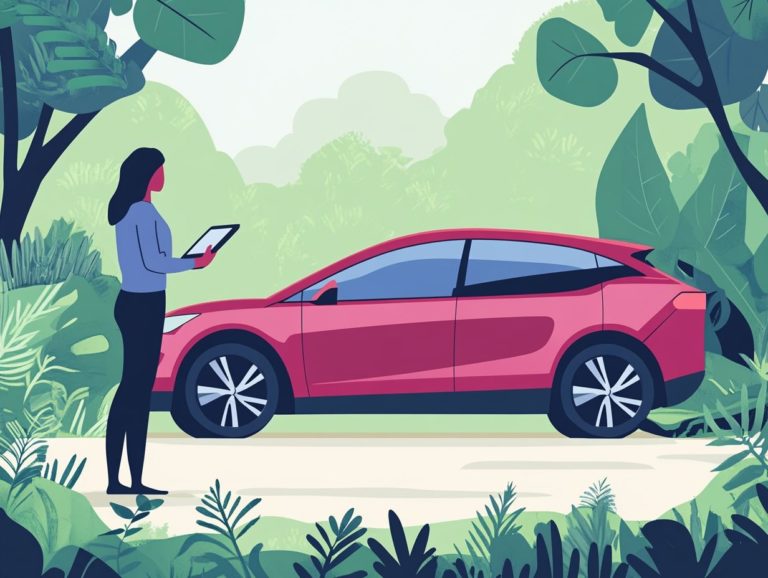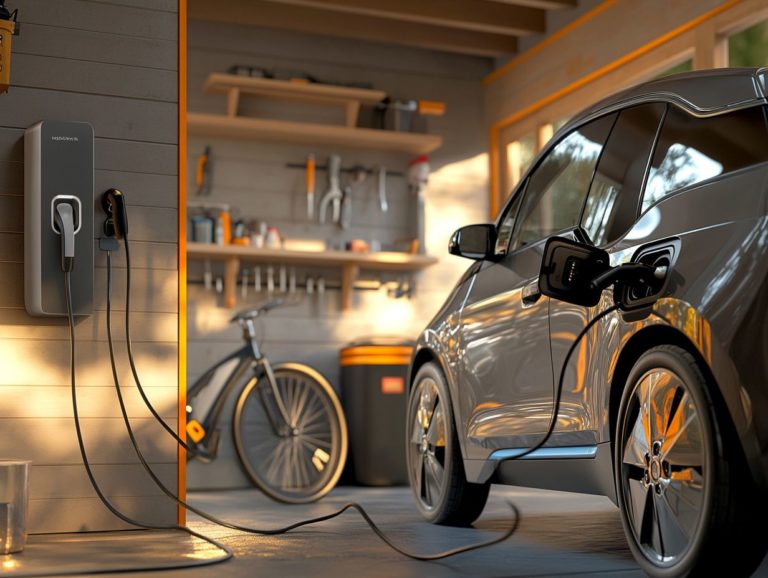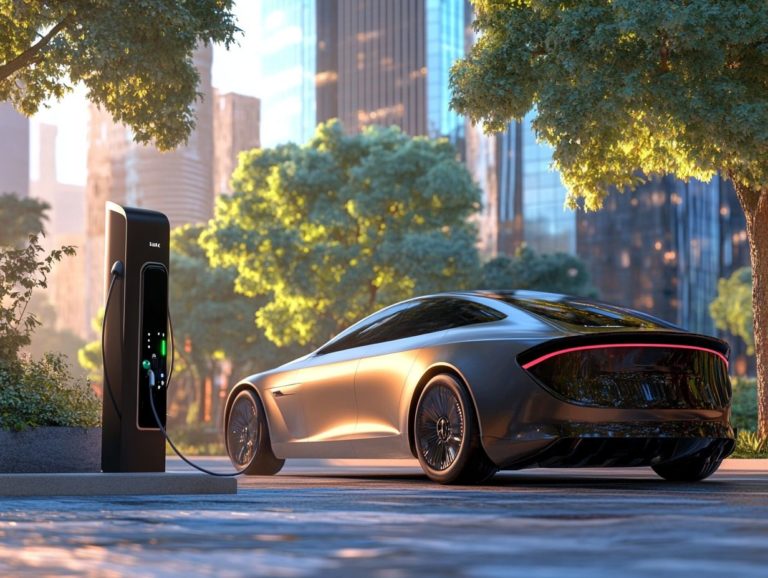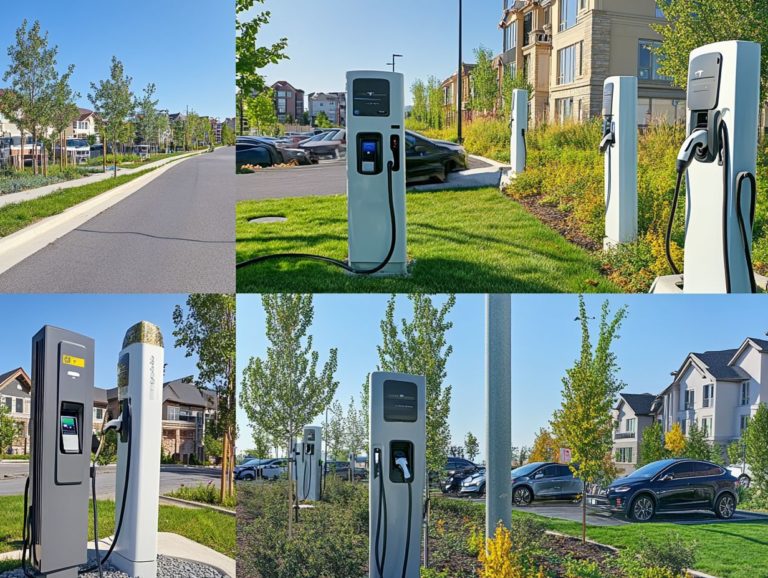What Is the Impact of EVs on the Economy?
Electric vehicles (EVs) are changing the way we drive and influencing the economy. As we embrace sustainable transportation, it is crucial to understand the significant impact EVs have on our economy.
By reducing reliance on fossil fuels and creating new jobs and industries, EVs offer substantial benefits. However, challenges remain, such as gaps in infrastructure and environmental issues that must be addressed.
This article explores the economic implications of EVs, their bright future, and the essential role of government policies in this evolving landscape. Join us as we examine the relationship between electric vehicles and the economy.
Contents
- Key Takeaways:
- Benefits of EVs on the Economy
- Challenges and Criticisms of EVs
- The Future of EVs and the Economy
- Government Incentives and Policies
- Frequently Asked Questions
- What Is the Impact of EVs on the Economy?
- How do EVs impact the job market?
- What is the economic benefit of EVs?
- Are there any potential challenges to the economy with the rise of EVs?
- What is the government’s role in the impact of EVs on the economy?
- How does the adoption of EVs affect the overall economy?
Key Takeaways:
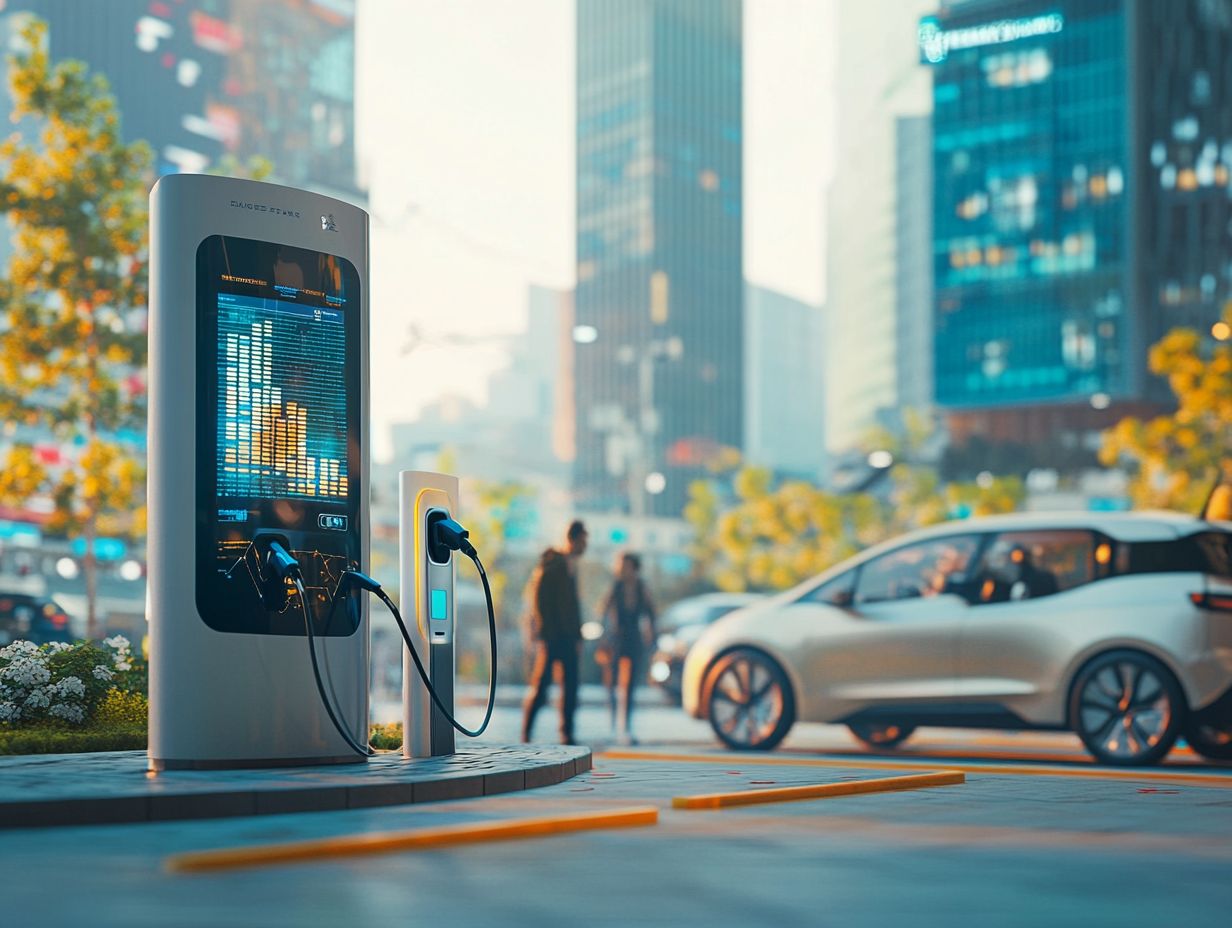
- EVs are vehicles that run on electricity instead of fossil fuels, and their adoption significantly impacts the economy.
- EVs reduce dependence on fossil fuels, creating new jobs and industries in the renewable energy sector.
- Despite challenges like infrastructure and range limitations, the future of EVs is bright, with government incentives and policies supporting their growth.
What are EVs and How Do They Work?
Electric vehicles (EVs) represent a big change in the automotive landscape, using electricity as their power source instead of traditional gasoline. They come in various forms, including battery electric vehicles, plug-in hybrid electric vehicles, and hybrid electric vehicles, each designed to meet different needs.
The function of EVs relies on their modern design, allowing them to harness energy from the grid or renewable sources, paving the way for a more sustainable future.
At the heart of these vehicles is a network of advanced batteries that store electricity, which is then converted into motion through electric motors. This efficient process enhances performance while minimizing energy loss, reducing greenhouse gas emissions.
The growth of charging stations further improves accessibility, allowing convenient recharging at home or public locations. As more people adopt e-mobility, the environmental benefits become clear: using renewable energy for charging lowers carbon footprints and contributes to cleaner air.
This shift promotes energy independence and drives innovation in sustainable technologies, creating a brighter future for consumers and the planet.
Benefits of EVs on the Economy
The economic benefits of electric vehicles (EVs) extend far beyond transportation; they significantly influence climate emissions, public health, and the job market. By reducing dependence on imported fossil fuels, EVs result in significant carbon savings, making a strong case for their widespread adoption.
Countries like the United States and China are recognizing electric mobility as a powerful driver of economic growth and a cleaner, more sustainable environment.
Reducing Dependence on Fossil Fuels
Reducing reliance on imported fossil fuels is critical when adopting electric vehicles (EVs), especially as global energy security concerns rise. Transitioning to e-mobility helps decrease dependence on oil, enhancing energy security while promoting renewable energy sources. This shift lowers greenhouse gas emissions and contributes to a more resilient energy infrastructure.
Incorporating electric vehicles into the transportation system encourages substantial investment in renewable energy technologies such as wind, solar, and hydroelectric power. Studies show that for every 1 million electric vehicles on the road, approximately 20 million barrels of oil could be saved annually. This transition also diminishes oil price volatility, protecting economies from global market fluctuations.
By embracing this change, you not only contribute to a sustainable future but also open the door to emerging green technologies, potentially leading to job creation and economic growth in sectors tied to electric mobility and renewable energy.
Explore the world of electric vehicles and discover how you can be part of this exciting shift toward a more sustainable future!
Creating New Jobs and Industries
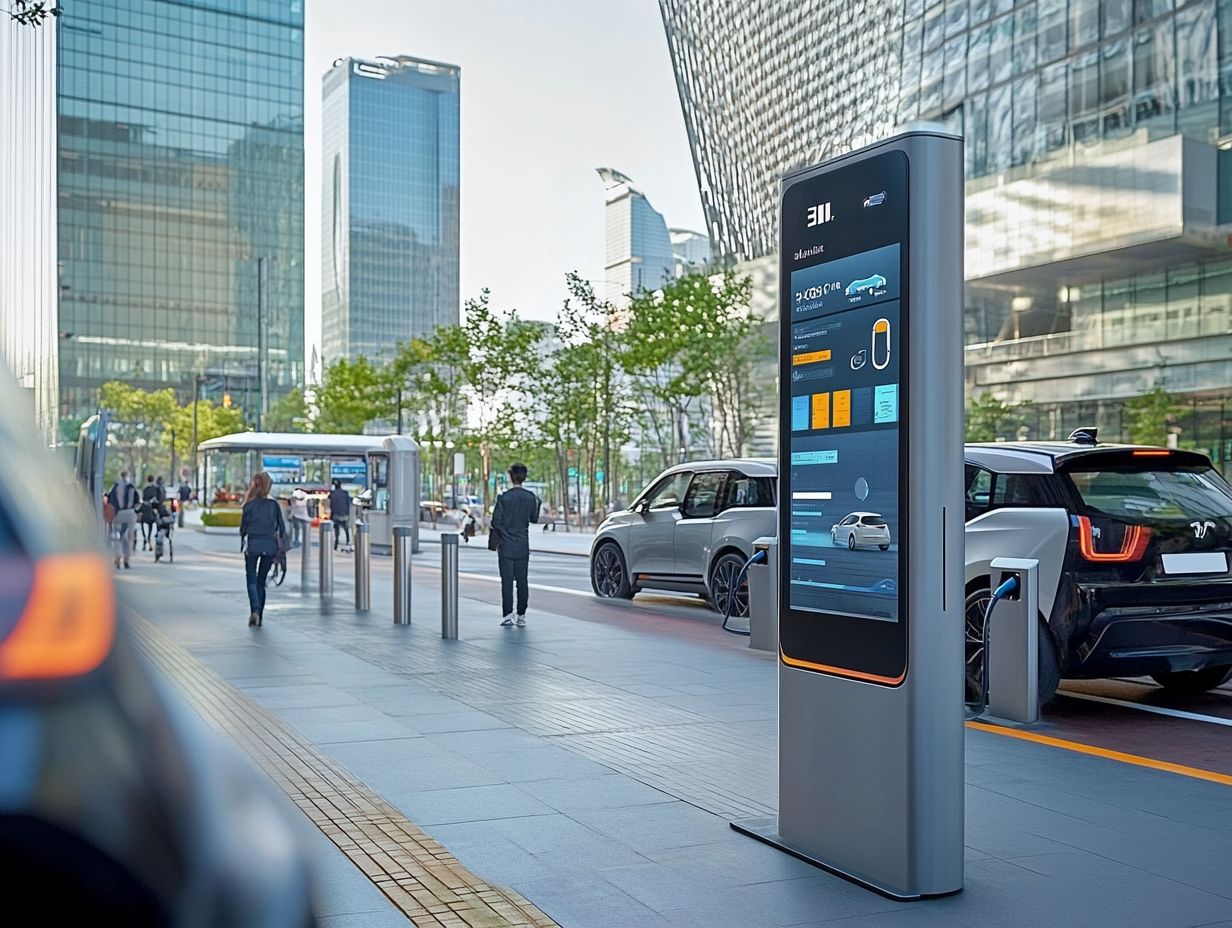
The rise of electric vehicles (EVs) is paving the way for new jobs and industries, positioning e-mobility as a pivotal force in economic development. Move through this change, and you’ll find a diverse range of employment opportunities emerging from manufacturing to maintenance that are essential for bolstering the case for adopting EVs. Expect to see exciting growth and innovation within your community.
There’s a huge demand for skilled workers in manufacturing, driven by the need for new production facilities to create batteries, motors, and vehicles. The expansion of charging infrastructure is opening up a plethora of roles, from installation technicians to sales and marketing positions focused on promoting EV solutions.
The research and development sectors are thriving, which needs engineers and scientists to innovate battery technologies and enhance overall vehicle efficiency. The economic implications are substantial; these job opportunities not only contribute to local economies but also stimulate investments in sustainable practices, highlighting the transformative potential of the electric vehicle sector.
Challenges and Criticisms of EVs
Electric vehicles (EVs) encounter a range of challenges and criticisms that can impede their widespread acceptance. Concerns such as insufficient charging infrastructure and limited range pose significant obstacles.
There are potential environmental issues related to battery production and disposal that warrant consideration. Growing traffic in cities leads to questions about the overall efficacy of EVs in tackling today s transportation dilemmas.
Infrastructure and Range Limitations
Infrastructure and range limitations are significant barriers to the widespread adoption of electric vehicles (EVs), and they undoubtedly affect how you feel as a consumer and the overall market growth. The presence of robust charging infrastructure and the establishment of public charging stations are vital to alleviating your concerns about range anxiety, the fear of running out of battery before reaching a charging station. Innovative solutions, such as battery-swapping systems systems that let you quickly exchange your empty battery for a full one are emerging to tackle these challenges head-on.
As cities and regions start to recognize these obstacles, investments in charging networks are becoming a priority. This is leading to a gradual yet promising expansion of charging stations in both urban and rural areas. This growth helps ease the anxiety associated with long journeys and enhances your accessibility to EVs.
Alternate strategies like battery-swapping can significantly reduce downtime, allowing you to quickly exchange depleted batteries for fully charged ones, making electric mobility a more attractive option.
These advancements in infrastructure and technology are crucial in reshaping the EV landscape, fostering greater consumer confidence, and ultimately paving the way for a shift toward sustainable transportation.
Environmental Concerns
While electric vehicles (EVs) are often celebrated for their environmental advantages, it is crucial to consider several production issues, particularly surrounding battery production and disposal. The potential climate emissions linked to battery manufacturing can sometimes offset the carbon savings gained during the vehicle’s operation, prompting important questions about the long-term viability of electric mobility.
Addressing these issues is key to encouraging the ongoing adoption of EVs. The extraction of essential raw materials, such as lithium, cobalt, and nickel, for battery production poses significant environmental challenges, including habitat destruction and water pollution.
The energy-intensive processes involved in battery manufacturing can create substantial carbon footprints. For instance, a study from the International Council on Clean Transportation revealed that the lifecycle emissions from battery production alone can reach up to 200 grams of CO2 per kilometer.
You must consider these factors to make informed decisions! The long-term benefits of EVs can slash greenhouse gas emissions by as much as 60% during their operational life compared to traditional combustion engines.
Consequently, adopting a comprehensive approach that incorporates responsible sourcing and recycling strategies is essential to fully harness the environmental advantages of electric vehicles.
The Future of EVs and the Economy
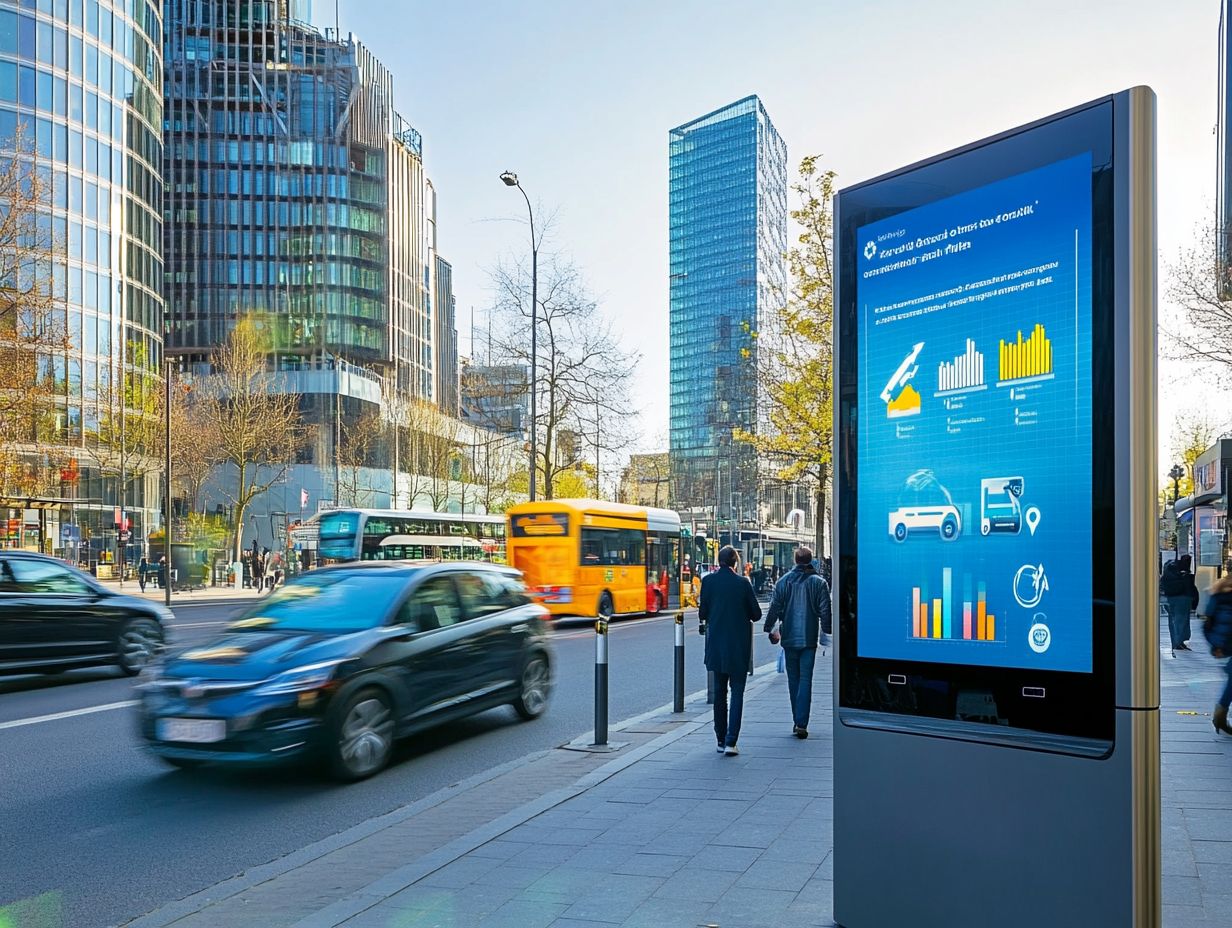
The future of electric vehicles (EVs) and their economic impact is a subject of considerable debate, with numerous forecasts indicating a transformative shift in transportation.
As the economic rationale for e-mobility grows stronger, advancements in renewable energy technologies and infrastructure are set to play a crucial role in this transition.
Nations worldwide are beginning to appreciate the significance of EVs in cultivating a sustainable economic landscape.
Predictions and Projections
Predictions about electric vehicles (EVs) suggest a remarkable shift towards widespread adoption, driven by technological advancements and supportive policies. Industry analysts anticipate that by 2030, a substantial portion of new car sales will be electric vehicles, highlighting the economic rationale for integrating them into the mainstream market.
According to a recent report from the International Energy Agency, it is projected that electric vehicles could account for 30% of global automobile sales by 2030, leading to significant reductions in greenhouse gas emissions. This optimistic outlook is supported by various driving factors, including government incentives designed to lower carbon footprints and enhance energy security.
As consumer behavior shifts reflecting a growing preference for sustainable options coupled with technological advancements that boost battery efficiency and cut costs, the EV market is poised for significant growth. This comprehensive approach is set to accelerate the transition, positioning electric vehicles as not only an environmentally responsible choice but also an economically attractive option for a wider audience.
Government Incentives and Policies
Government incentives and policies play a pivotal role in shaping the electric mobility landscape, encouraging you to embrace electric vehicles (EVs) through a range of support mechanisms.
Legislation like the Inflation Reduction Act and the Energy Policy Act is designed to offer financial assistance and tax credits, enhancing consumer confidence and propelling market growth.
These initiatives not only foster EV adoption but also align perfectly with global climate goals, making a significant impact on our collective future.
Learn more about how you can be part of the electric vehicle revolution!
Supporting the Growth of EVs
Supporting the growth of electric vehicles (EVs) requires a thoughtful and varied approach that considers consumer sentiment, economic benefits, and public health. By creating an environment that encourages EV adoption, you can contribute to a greener future.
This approach also addresses pressing issues like traffic congestion and climate emissions. Engagement initiatives in your community can play a vital role in educating local citizens about the benefits of transitioning to EVs.
Public awareness campaigns emphasizing significant reductions in greenhouse gas emissions and improvements in air quality can serve as powerful motivators for potential adopters.
Strategic partnerships between government bodies and the private sector can pave the way for substantial investments in EV infrastructure, ensuring that charging stations are widely accessible.
Research indicates that cities promoting EV adoption have experienced a remarkable 20% decrease in breathing problems.
A recent case study in California illustrates the economic impact: every job created in the EV sector stimulates 1.5 additional jobs within the economy, highlighting how EVs can drive sustainable economic growth.
Frequently Asked Questions
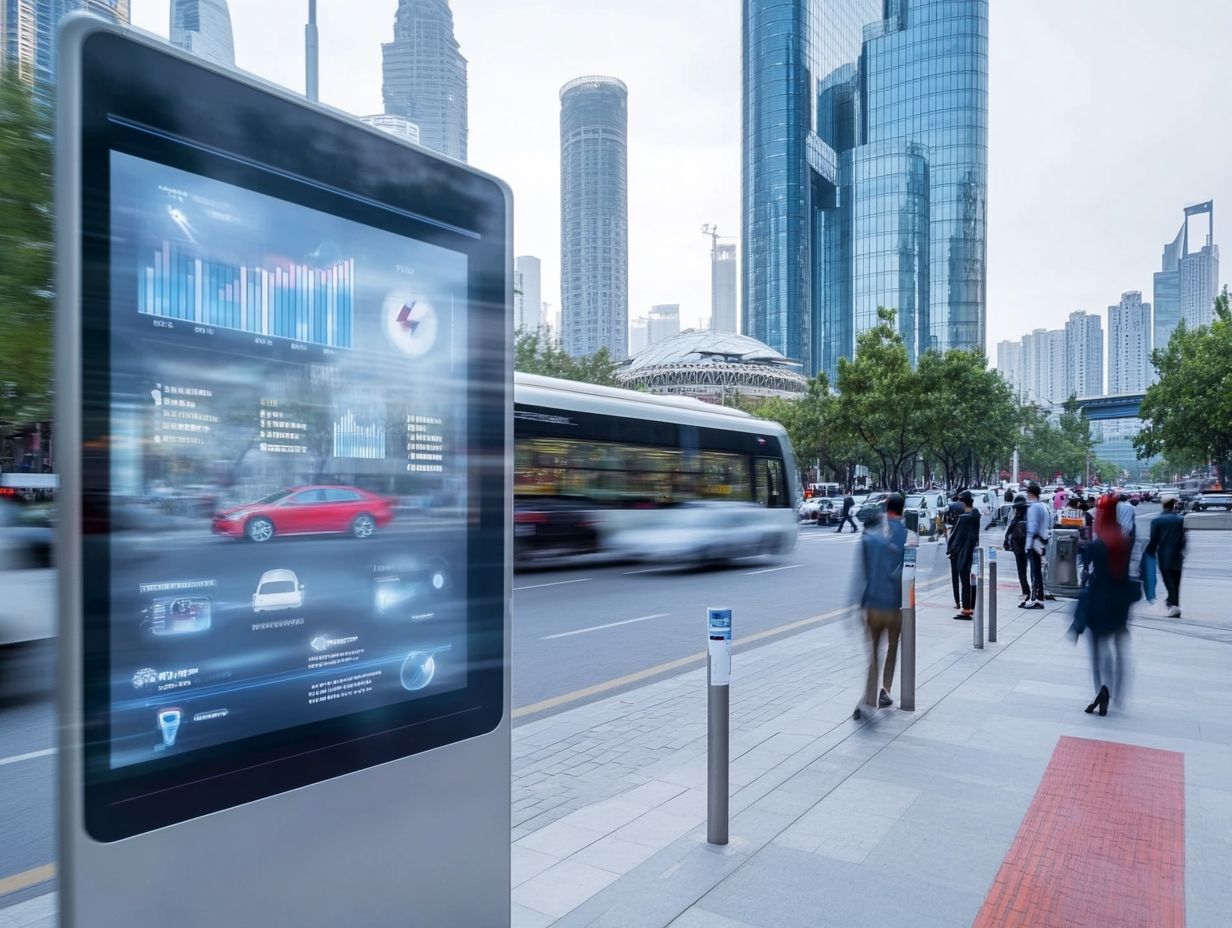
What Is the Impact of EVs on the Economy?
EVs significantly impact the economy. As electric vehicles gain popularity, their effects are becoming more apparent.
How do EVs impact the job market?
EVs positively affect the job market by creating new opportunities in manufacturing, maintenance, and servicing. The shift towards EVs creates jobs in the renewable energy sector, further boosting the economy.
What is the economic benefit of EVs?
Switching to EVs offers numerous economic benefits. Firstly, it reduces reliance on fossil fuels, which can be expensive and volatile. Secondly, EVs generally feature lower maintenance and operating costs, saving consumers money in the long run. Lastly, EVs contribute to a cleaner environment, which reduces healthcare costs and improves productivity.
Are there any potential challenges to the economy with the rise of EVs?
While there are many advantages to EVs, potential challenges exist. The shift towards EVs may impact the oil and gas industry, possibly leading to job losses in that sector. The cost of transitioning to EVs may also pose a challenge for some consumers and businesses.
What is the government’s role in the impact of EVs on the economy?
The government plays a crucial role in the impact of EVs on the economy. They provide incentives and subsidies to encourage EV adoption, which can boost the economy. Additionally, government investments in infrastructure for EVs, such as charging stations, create new job opportunities and support market growth.
How does the adoption of EVs affect the overall economy?
The adoption of EVs positively impacts the overall economy. It reduces dependence on imported oil, creating a more stable economy. It supports the growth of new industries, such as renewable energy and EV manufacturing, leading to economic growth and job creation. Moreover, reducing greenhouse gas emissions can help mitigate the effects of climate change, benefiting the economy.



